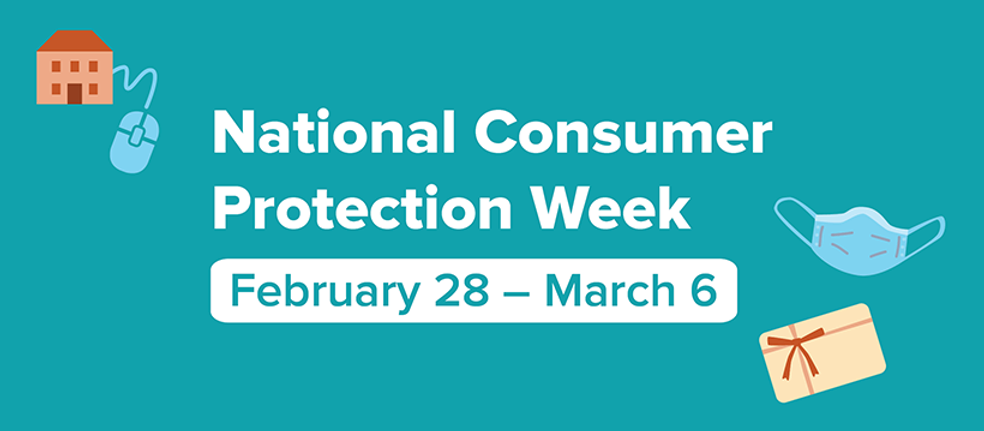Coronavirus Scams on the Rise: Advice for Consumers

National Consumer Protection Week #NCPW2021 is February 28th through March 6th, 2021, and the Federal Trade Commission (FTC) is diligently working to provide consumers with the necessary information to protect themselves from fraud and scammers seeking personal information from innocent and uniformed consumers.
Since the beginning of the Coronavirus pandemic the Federal Trade Commission has seen a rapid increase of COVID-19 scams. Scammers are getting creative about the way they obtain your information, whether it be COVID-19 testing scams, Stimulus or COVID-19 relief scams, or COVID-19 vaccine scams.
Here are some tips from the Federal Trade Commission to protect yourself from these types of scams:
Learn how to tell the difference between a real contact tracer and a scammer.
Legitimate tracers need health information – NOT money or personal financial information.
Don’t respond to texts, emails or calls about checks from the government.
According to the Federal Trade Commission, “Most people don’t have to do anything to get their money because the IRS will use the same payment method – direct deposit, Direct Express debit card, or paper check – used to send you your tax refund, Social Security, retirement, or other government benefits money. If the IRS doesn’t have your direct deposit information, you can go to the “Get My Payment” feature at irs.gov/coronavirus and let them know where to send your direct deposit.”
Be wary of test kits.
According to the FTC, “Many test kits being advertised have not been approved by the FDA and aren’t accurate.” There are many places from which you can obtain a legitimate virus test.
Hang up on robocalls.
Scammers are using illegal robocalls to pitch everything from low-priced health insurance to work-at-home schemes. “A robocall trying to sell you something is illegal unless a company has your written permission to call you that way. To get your permission, the company has to be clear it’s asking to call you with robocalls, and it can’t make you agree to the calls to get a product or service. If you give permission, you have the right to change your mind later.”
Watch for emails claiming to be from the CDC or WHO.
Use sites like coronavirus.gov and usa.gov/coronavirus to get the latest information.
Do your research when it comes to donations.
Never donate in cash, by gift card, or by wiring money.
Don’t pay to sign up for the COVID vaccine.
Anyone who asks for a payment to put you on a list, make an appointment for you, or reserve a spot in line is a scammer.
You can’t pay to get early access to the vaccine.
This is 100% a scam!
If you are on Medicare, you don’t have to pay to get the vaccine.
ONLY scammers will ask you to pay for the vaccine if you are a Medicare patient.
Only scammers will call, text or email about the vaccine.
Do not give out personal information – Social Security, bank account, credit card number, etc. Only scammers will try to obtain this information from you through call, text or email.
Ignore sales ads for the vaccine – you can’t buy it anywhere!
The COVID-19 vaccine is only available at federal – and state – approved locations.
You can learn more about COVID-related scams at ftc.gov/coronavirus/scams.
If you see any scams or think you might be a victim of a scam, please report this to the FTC at ReportFraud.ftc.gov.
#NCPW2021 #FraudProtection #CoronavirusScams #FTC #FederalTradeCommission #YourCommunityCreditUnion
